|
|
|
|
|
|
|
|
2015 Arctic Circle Assembly, October 16-18, 2015 (Reykjavik, Iceland). The Arctic Circle is the largest global gathering on the Arctic. It is attended by heads of state and governments, ministers, members of parliament, officials, experts, scientists, entrepreneurs, business leaders, indigenous representatives, environmentalists, students, activists, and others from the growing international community of partners and participants interested in the future of the Arctic. The Arctic Circle highlights issues and concerns, programs, policies and projects; it provides platforms for dynamic dialogue and constructive cooperation. While the plenary sessions are the responsibility of the Arctic Circle, the breakout sessions are organized by various participating partners in their own name and with full authority over the agenda and the choice of speakers.
Today's Congressional Action:
The House and Senate are not in session.
|
[Opinion] Our Deadended, Carbon-Soaked Seas. Ocean and coastal waters around the world are beginning to tell a disturbing story. The seas, like a sponge, are absorbing increasing amounts of carbon dioxide from the atmosphere, so much so that the chemical balance of our oceans and coastal waters is changing and a growing threat to marine ecosystems. Over the past 200 years, the world's seas have absorbed more than 150 billion metric tons of carbon from human activities. Currently, that's a worldwide average of 15 pounds per person a week, enough to fill a coal train long enough to encircle the equator 13 times every year. New York Times
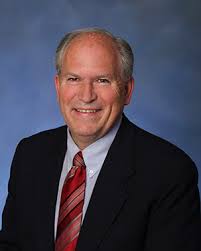 Walker Creates Tribal Advisory Council, Following Up on Pledge. Following up on a pledge to improve relations between the state government and Native tribes, Gov. Bill Walker on Wednesday issued an administrative order creating a tribal advisory council. Walker signed the order at the end of his address to a one-day Anchorage conference on tribal issues held by the Alaska Federation of Natives and the National Congress of American Indians. Alaska Dispatch News Walker Creates Tribal Advisory Council, Following Up on Pledge. Following up on a pledge to improve relations between the state government and Native tribes, Gov. Bill Walker on Wednesday issued an administrative order creating a tribal advisory council. Walker signed the order at the end of his address to a one-day Anchorage conference on tribal issues held by the Alaska Federation of Natives and the National Congress of American Indians. Alaska Dispatch News
Norway App Helps Reaction to Oil Spills. How large the impact from an oil spill occurrence is, depends on how quickly the clean-up begins. While operational crews before had to take notes using pen and paper and manually log the data in a map solution, they can now do registrations through a mobile application that makes the data accessible for the operation manages in real-time. Alaska Dispatch News
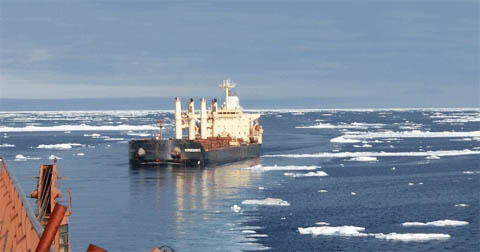 Polar Code Will Force Big Operator Investment. Experts predict a higher level of shipping activity through polar sea routes for the years to come. Aiming to limit the impact of this activity on the region's fragile environment, the IMO's Polar Code sets standards that are likely to affect operators in a big way when they come into force in 2017. The Polar Code, adopted by the IMO via amendments to the SOLAS (Safety of Life at Sea) and MARPOL (Prevention of Pollution from Ships) Conventions, sets a number of mandatory shipping rules, in addition to a number of recommendations and guidelines, aiming to help protect the environmentally sensitive region - covering a full range of shipping-related matters relevant to navigation in waters surrounding the two poles, such as ship design, navigation, crew training and education, search and rescue activities, and the discharge of oil, chemicals, sewage and garbage. MarineLink Polar Code Will Force Big Operator Investment. Experts predict a higher level of shipping activity through polar sea routes for the years to come. Aiming to limit the impact of this activity on the region's fragile environment, the IMO's Polar Code sets standards that are likely to affect operators in a big way when they come into force in 2017. The Polar Code, adopted by the IMO via amendments to the SOLAS (Safety of Life at Sea) and MARPOL (Prevention of Pollution from Ships) Conventions, sets a number of mandatory shipping rules, in addition to a number of recommendations and guidelines, aiming to help protect the environmentally sensitive region - covering a full range of shipping-related matters relevant to navigation in waters surrounding the two poles, such as ship design, navigation, crew training and education, search and rescue activities, and the discharge of oil, chemicals, sewage and garbage. MarineLink
Arctic Circle Opens. President Ólafur Ragnar Grímsson this morning opened the Arctic Circle Conference at Harpa concert hall, mbl.is reports. He called the conference the largest annual gathering held to discuss issues regarding the Arctic and welcomed representatives of states, the scientific community, public organizations and others to share their ideas. He said the conference sent a strong message that its participants intended to safeguard the Arctic. Iceland Review
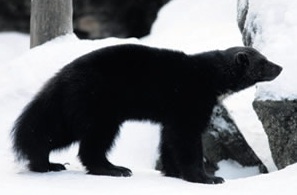 Shrinking Habitats in Store for Arctic Mammals. A new study examining how 28 of Alaska's mammal species will respond to future climate warming was released recently by the U.S. Geological Survey. Information for the study, conducted by several University of New Mexico alumni, was gathered using field research coupled with genetic analyses to determine how mammals responded to past climate changes. Phys.Org Shrinking Habitats in Store for Arctic Mammals. A new study examining how 28 of Alaska's mammal species will respond to future climate warming was released recently by the U.S. Geological Survey. Information for the study, conducted by several University of New Mexico alumni, was gathered using field research coupled with genetic analyses to determine how mammals responded to past climate changes. Phys.Org
A Quick Start Guide to the Arctic Council. When residents south of 66 Degrees North imagine the Arctic, images of polar bears, melting ice, and peopleless snowscapes construct the dominate narrative. Borrowed from centuries of layered romantic visualizations of the circumpolar north as a last frontier, the Arctic is often imagined as a terra nullius, an expression derived from Roman law meaning "nobody's land." Iterations of this Victorian lawless nomansland can be seen in today's media headlines claiming imminent resource scrambles and a race to control the region as the sea ice disappears. But, aptly put by US Navy Rear Admiral David Titley, "The Arctic is not the Wild West." The Arctic Institute
|
Legislative Action
No Arctic legislation was formally considered yesterday.
|
|
Future Events
**New this week** Charting Japan's Arctic Strategy, October 19, 2015 (Washington, D.C., USA). Japan's presence in the Arctic is not new, but it has been limited mostly to scientific research. Japan has stepped up its engagement after it gained observer status to the Arctic Council and appointed its first Arctic ambassador in 2013. However, Japan has yet to flesh out a full-blown Arctic strategy that identifies the range of its national interests in the polar region and actionable strategies to achieve them. The Arctic offers Japan an opportunity to expand cooperation with the United States in an uncharted area, poses hard questions on how to interact with Russia in the post-Ukraine era, and creates the interesting proposition of whether China and Japan can cooperate in articulating the views of non-Arctic states. Registration is required. The event will webcast as well.
Penn State University will host an afternoon panel of national experts in the Arctic and in US interests in the region. Building on the law of the sea expertise of VADM James Houck (former Navy Judge Advocate General and now Interim Dean of the Law School and School of International Affairs at Penn State) and the knowledge of the changing Arctic environment of RADM David Titley (former head of the Navy's Task Force Climate Change and now professor from practice in the Department of Meteorology), and Fran Ulmer, Chair of the US Arctic Research Commission (keynote speaker), the panel brings together experts in science, law, policy, and Arctic diplomacy. We see these experts individually at events in Washington, but Penn State is doing a great service in bringing them altogether at one event in an region that seldom gets such first hand expertise.
The Polar Oceans and Global Climate Change, November 3-6, 2015 (La Jolla, California USA). The American Polar Society will host this Symposium at Scripps Institution of Oceanography. A flyer with a partial list of presenters is available on the Society's website (americanpolar.org) and from the Society's Membership Chairman by email.
Forum for Arctic Modeling and Observational Synthesis Meeting, November 3-6, 2015 (Cape Cod, MA, USA). On November 3rd, the 2015 School for young scientists will consider "Regional Oceanography of the Arctic marginal seas" with lectures covering major features of atmospheric, sea ice and oceanographic regimes of the: Bering, Chukchi, Beaufort, East-Siberian, Laptev Sea, Kara, Barents and Nordic seas. On November 4-6, the meeting portion will summarize project accomplishments for the last 3 years of activities and will focus on the formulation of scientific questions and directions for FAMOS future research (2016-2019) to: (a) improve Arctic modeling, employing very high resolution models; (b) develop and test new arctic monitoring/observing systems and (c) improve predictions of Arctic environmental parameters with reduced uncertainties.
Due North: Next Generation Arctic Research & Leadership, November 5-8, 2015 (Calgary, Alberta, Canada). The Association of Canadian Universities for Northern Studies (ACUNS) will convene an interdisciplinary conference of early career scientists working on Arctic issues. Topics will include: Arctic Communities, Arctic Sustainable Development, Arctic Wildlife, Ecosystem and Biodiversity, Arctic Food Security, Arctic Landscapes, Climate Change and Adaptation, Disaster Risk Management, Policy, Politics and Leadership, Arctic Environment (Data and Techniques), Arctic Resources, and Future of Arctic.
Matchpoints Seminar, November 12-13, 2015 (Aarhus, Denmark). The purpose of the conference is to provide a forum for policy-makers and academics to deliberate on how the security, resilience and sustainability of the globalized Arctic region and its peoples may be enhanced, and what instruments of governance may most suitably contribute. The conference will spell out (1) how the different relevant dimensions of security (military, economic, environmental, energy and human security) manifest themselves in the governing / governance arrangements in the Arctic; (2) how the challenges associated with each manifest themselves, individually and together; and (3) what forms of governing arrangements can best help to address the challenges. The conference will also focus on (4) how the Nordic countries and nations, including Greenland, the Faroe Islands and Aaland Islands, may contribute to the peace, stability and prosperity of the Arctic region through collaborative efforts based on their shared social, human, environmental and democratic values.
Arctic Observing Open Science Meeting, November 17-19, 2015 (Seattle, Washington). The Arctic Observing Open Science Meeting will be 2.5 days and held at the Hyatt at Olive 8 in Seattle, Washington. The conference will bring together individuals and teams involved in the collection, processing, analysis, and use of observations in the Arctic - from academia, agencies, industry, and other organizations. The meeting will be convened as a combination of plenary talks, parallel science sessions, and a poster session. The deadline for the Meeting Registration is Tuesday, 20 October. The agenda and registered attendees can be found on the meeting website.
In the Spirit of the Rovaniemi Process 2015, November 24-26, 2015 (Rovaniemi, Lapland, Finland).When the Arctic Environmental Protection Strategy, the so-called Rovaniemi Process, was adopted in 1991, it aimed at overcoming divisions and turning the zone of Cold War military tensions into a region of peace and co-operation. In this joint effort focusing on the protection of environment, and later, sustainable development, the Arctic states supported by indigenous organizations laid grounds for institutionalized collaboration and the emergence of Arctic regional identity. The second international conference will bring together decision-makers, scholars, artists, designers and students to address these questions and discuss the Arctic in global, regional and local perspectives.
Arctic Encounter Paris (AEP 2015), December 11-12, 2015 (Paris, France) (During the UN Convention on Climate Change - COP21). The Arctic Encounter Paris will take place at the French Senate at Luxembourg Palace and the 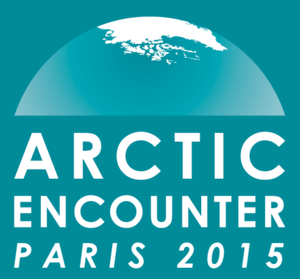 French Military College, École Militaire, in Paris, France, on the final days of the monumental United Nations Convention on Climate Change (COP21) where thousands of global citizens and government delegates will be gathered to deliberate the world's response to our changing planet in Paris. The AEP is the only Arctic policy side event currently planned to take place during the UN Convention. A reception will take place following the closing panel. French Military College, École Militaire, in Paris, France, on the final days of the monumental United Nations Convention on Climate Change (COP21) where thousands of global citizens and government delegates will be gathered to deliberate the world's response to our changing planet in Paris. The AEP is the only Arctic policy side event currently planned to take place during the UN Convention. A reception will take place following the closing panel.
This symposium is part of an ongoing initiative of the National Academies of Science Polar Research Board to expand public understanding of why the dramatic changes affecting the Arctic region ultimately matter to us all. The agenda features engaging presentations and discussions with top Arctic science and policy experts, and displays and interactive exhibits that illustrate Arctic change and its global impacts. The event is free and open to the public. There are sponsorship opportunities, and a call for exhibitor applications (by Oct.31, 2015). Audience space is limited, so register today; and please encourage your friends, neighbors, and colleagues to participate-as our goal is to reach well beyond the small circle of specialists who typically attend Arctic-themed events in the DC area. The U.S. Arctic Research Commission is helping to sponsor this event.
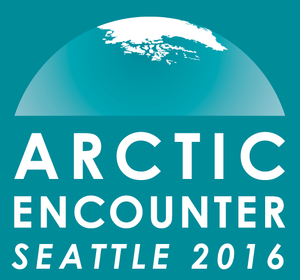 Building upon the preceding Arctic Encounter event in Paris, the third annual Arctic Encounter Symposium (AES) in Seattle, Washington will convene policymakers, industry leaders, and leading experts to confront the leading issues in Arctic policy, innovation, and development. As the largest annual Arctic policy event in the United States, the AES mission is to raise awareness, engage challenges, and develop solutions for the future of a region and a people. The two-day program includes two keynote luncheons, expert plenary sessions, break out sessions, a networking cocktail reception and seated dinner. A closing reception will take place at the conclusion of the program. Building upon the preceding Arctic Encounter event in Paris, the third annual Arctic Encounter Symposium (AES) in Seattle, Washington will convene policymakers, industry leaders, and leading experts to confront the leading issues in Arctic policy, innovation, and development. As the largest annual Arctic policy event in the United States, the AES mission is to raise awareness, engage challenges, and develop solutions for the future of a region and a people. The two-day program includes two keynote luncheons, expert plenary sessions, break out sessions, a networking cocktail reception and seated dinner. A closing reception will take place at the conclusion of the program.
|
|

  
4350 N. Fairfax Drive, Suite 510
Arlington, VA 22203, USA
External links in this publication, and on the USARC's World Wide Web site ( www.arctic.gov) do not constitute endorsement by the US Arctic Research Commission of external Web sites or the information, products or services contained therein. For other than authorized activities, the USARC does not exercise any editorial control over the information you may find at these locations. These links are provided consistent with the stated purpose of this newsletter and the USARC Web site.
|
|
|
|
|
|
|
|
|